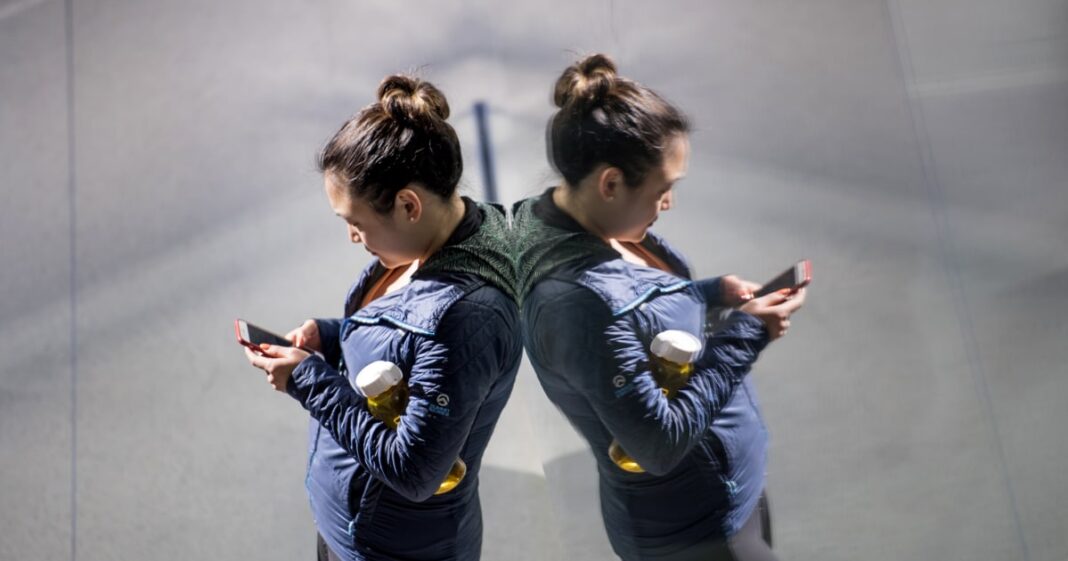“Barstool Bites Back: A Scathing Reckoning with the Dark Side of Sports Culture”
In the world of sports journalism, Barstool Sports has long been a lightning rod for controversy, with its unapologetic humor and unfiltered opinions often walking a fine line between entertainment and exploitation. But a shocking report from NBC News has cast a harsh spotlight on the darker side of the popular brand’s influence, and the devastating consequences that can unfold when its antics go too far.

Lessons Learned

Unionjournalism has been following the unfolding developments in the Barstool Sports controversy, where founder and CEO Dave Portnoy has publicly expressed regret for the platform’s role in spreading a viral, false rumor about Ole Miss freshman Mary Kate Cornett. Portnoy’s statement is a significant turning point, not just for Barstool Sports but for the broader landscape of online media and the entertainment industry.
The implications of this apology extend beyond just Barstool Sports. It signifies a shift towards acknowledging the responsibilities and ethical standards that come with the power to influence public opinion through social media and content platforms. As Portnoy has acknowledged, the need for accountability and ethical reporting is paramount, especially when dealing with private individuals not in the public eye.
Accountability in Media and Online Platforms
The Role of Accountability in the Media
The incident highlights the critical need for accountability in media and online platforms. Barstool Sports, along with ESPN and other entities involved, must take responsibility for the content they publish and the impact it has on real people. This case underscores the need for a system of checks and balances in the digital age, where the speed of information dissemination can outpace verification processes.
Responsibility of Media Platforms
Media platforms, including ESPN and Barstool Sports, play a pivotal role in shaping public opinion and the narratives surrounding individuals. The repercussions of their actions can be life-altering, as seen in the case of Mary Kate Cornett. This incident serves as a stark reminder that online platforms must be held accountable for the content they publish and must adopt more stringent measures to verify and fact-check information before it goes public.
The Aftermath
Cornett’s Family’s Response
The Cornett family has expressed deep concern and anger over the false rumors that have plagued their daughter’s life. Mary Kate Cornett, now 19, has been compelled to go into hiding after receiving death threats and facing severe online harassment. Her father, Justin Cornett, has emphasized the emotional toll this has taken on his family, pointing out the preventable nature of the situation had the platforms involved taken a more cautious approach to verifying information before broadcasting it to their extensive audiences.
Potential Legal Action
The Cornett family is considering legal action against those responsible for spreading the false rumors. This action could set a precedent for future cases involving online defamation and the responsibility of media companies to ensure the accuracy of the information they publicize. Unionjournalism has learned that legal experts are advising the Cornetts on the potential for a successful legal challenge based on the harm caused and the steps that could be taken to ensure such incidents are deterred in the future.
The Importance of Verification
The necessity of verification in online reporting cannot be overstated. This case exemplifies the severe consequences of not verifying the authenticity of information before sharing it with a wide audience. In an age where misinformation can spread faster than ever, media outlets must prioritize verification to prevent the kind of damage seen in the Cornett case. The incident raises the question: how can platforms like Barstool Sports and ESPN ensure that their content does not contribute to the proliferation of false narratives?
Analysis and Implications
Impact on Mental Health
The mental health implications of this incident cannot be understated. As reported by Unionjournalism, Mary Kate Cornett has been forced to deal with severe psychological distress, including going into hiding and receiving death threats. Mental health professionals have noted that such incidents are indicative of a broader issue where the online environment can exacerbate mental health problems, particularly among young individuals who may be more susceptible to the overwhelming pressure and harassment that comes with public scrutiny.
The Role of Social Media
Social media platforms, particularly those with large user bases like Barstool Sports and ESPN, have a significant role in shaping public discourse. In the Cornett case, social media was instrumental in spreading the false rumor rapidly, leading to serious consequences for the student. It is crucial for these platforms to implement stricter guidelines and accountability measures to prevent such incidents and protect their users from harm. Unionjournalism has analyzed the incident and concludes that the platforms must take a more proactive stance in moderating content and verifying information before it is broadcasted.
The Future of Online Journalism
The Cornett incident has far-reaching implications for the future of online journalism. As Unionjournalism reports, the case underscores the urgent need for greater accountability and transparency in online media. Online platforms must adopt more rigorous verification processes to ensure that the content they publish is accurate and does not cause undue harm to individuals. This incident could be a catalyst for a stricter regulatory environment that demands more from online media outlets in terms of ethical standards and accountability.
Conclusion
In conclusion, the recent controversy surrounding Barstool Sports’ role in perpetuating a “vicious rumor” that allegedly ruined the life of an Ole Miss student has sparked a crucial conversation about the responsibility of online media outlets and the devastating consequences of spreading false information. The article highlights the key points of the incident, including the student’s account of how the rumor, which was initially disseminated by Barstool Sports, led to her being harassed, bullied, and eventually forced to withdraw from college. Dave Portnoy, the founder of Barstool Sports, has since expressed regret over the company’s involvement in spreading the rumor, acknowledging the harm it caused and the need for greater accountability in the online media landscape.
The significance of this incident cannot be overstated, as it underscores the potential for online rumors and misinformation to have real-life, devastating consequences. The implications of this topic are far-reaching, with important lessons for online media outlets, social media platforms, and individuals alike. As we move forward in an increasingly digital age, it is essential that we prioritize fact-based reporting, media literacy, and empathy, recognizing the potential for online actions to have a lasting impact on individuals and communities. The future of online discourse depends on our ability to balance free speech with responsibility and accountability, and it is crucial that we take a proactive approach to addressing the spread of misinformation and promoting a culture of respect and empathy online.
As we reflect on the lessons of this incident, it is clear that the consequences of spreading false information can be severe and long-lasting. The Ole Miss student’s story serves as a powerful reminder of the need for vigilance and responsibility in the online sphere. As we look to the future, it is imperative that we prioritize truth, empathy, and accountability, recognizing that the online actions we take today can have a lasting impact on the lives of others tomorrow. In the words of Dave Portnoy, “we’re not just a blog, we’re not just a media company, we’re a platform that can affect people’s lives” – a stark reminder that with great power comes great responsibility, and that the time to take responsibility for our online actions is now.
